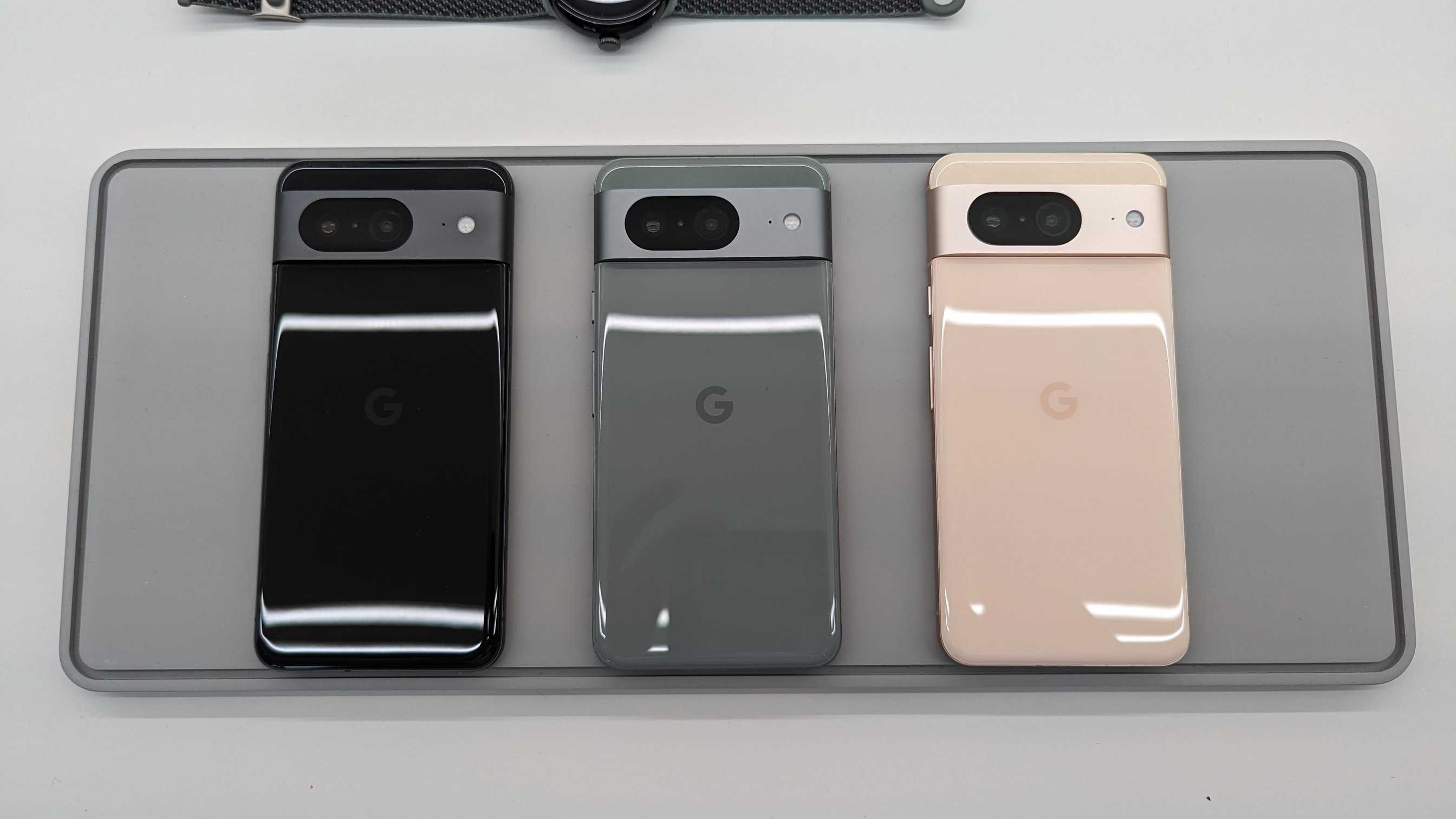Google Pixel 8 launches with new cameras, Tensor G3 and AI smarts – but there's a catch
A refined design, improved cameras and smart AI tech comes at a cost

Sign up for breaking news, reviews, opinion, top tech deals, and more.
You are now subscribed
Your newsletter sign-up was successful
What's the story?
Google unveiled the Google Pixel 8 at its October 4 Google Pixel 8 event, where we got to see the phone and its smart features in action. But it comes at a cost.
The company's new standard smartphone – the Google Pixel 8 – resembles its predecessors but sports a more rounded design, an upgraded camera and the company's latest Tensor G3 chipset – with significantly upgraded AI capabilities. it starts at $699 / £699 / AU$1,199 for a model with 128GB of storage and 8GB of RAM, which is £$100 / £100 / AU$200 more expensive than its predecessor, the Google Pixel 7.
What do I need to know about it?
Google has hit a stride of launching two flagship Pixel phones each October – one standard model and one Pro model – which is larger, sports a bigger, sharper screen, a more capacious, faster-charging battery, an additional telephoto camera and a few other extras. Here we're focusing on the standard Google Pixel 8.
Like the Pro, it runs a fresh-faced Android 14 experience out the box, boasts a new, wider-aperture 48MP primary camera (accompanied by a familiar 12MP ultra-wide, as on the Pixel 7) and runs on the company's latest Tensor G3 chip, which promises significant advances in AI processing.
A more heavily rounded design than the Pixel 7 – available in three colors (Obsidian, Hazel and Rose) – means a smaller 6.2-inch display with reduced dimensions to match. The newly-named 'Actua' Full HD+ OLED panel finally pushes past 90Hz to a new peak refresh rate of 120Hz, in line with key rivals like the Samsung Galaxy S23, granting more breathing room for a Pixel 8a in terms of hardware differentiation, which that phone presumably launching next year.
While camera resolution hasn't changed, both the Pixel 8 and Pixel 8 Pro lead with a new 48MP sensor that sports a wider aperture, the Pixel 8 also gains the previous Pro's Macro Mode shooting, and there's now an Audio Magic Eraser to eradicate specific sources of unwanted background noise in your videos.
As for that new Tensor G3 chipset; whose strengths lie in AI abilities, according to Google, "the biggest machine learning model on Pixel 8 is 10x more complex compared to Pixel 6," which is to say, it should be markedly more capable at pulling off impressive photo-editing tricks. The new Magic Editor is one example that'll let you move subjects around in a photo after capture, while smarter call screening is part of the Pixel 8's feature set too.
Launching with Android 14, Google has also extended the Pixel line's software support promise to an impressive seven years covering OS updates, Pixel Feature Drops and security updates (the Pixel line formerly topped out at up to five years of security updates).
Sign up for breaking news, reviews, opinion, top tech deals, and more.
What do we think of it?
In our hands-on Google Pixel 8 review, Lance Ulanoff enjoys all of the upgrades that the company has brought to this year's model, but the gap between at and the Pixel 8 Pro feels particularly prominent; more so than with previous generations.
Nevertheless, the price/performance balance it strikes at under $700 with the new Tensor G3 running the show is undeniably appealing.
The camera upgrades fall more to processing and AI than raw sensor ability, but that's always been Google's strong suit, and whether key features like the Magic Editor will make their way to older Pixel models remains to be seen at this point.
The promise of seven years of software updates is understandably excellent too, however, there's still ambiguity around whether that's explicitly security updates that'll be seeded for the duration or whether OS updates are covered by that same promise too, in which case it would be an impressive jump from three to seven, finally taking the crown back from Samsung and even beating Apple in this department. We've reached out to Google for clarification on this point.
So that the Pixel 8 looks like a solid Android smartphone but we can't help feel the increased price stings a bit, especially when the cost of living has rocketed and the Pixel 7 was keenly-priced. Google's Pixel 7 will need to be on its top form to now win a spot on out best Android phones list.
Further reading
- 1-minute news: Google Pixel Watch 2 is smarter, faster and longer-lasting
- 1-minute news: Google Pixel 8 Pro arrives with big camera upgrades and a whole lotta AI
- Google Pixel 8: everything you need to know
- Google Pixel 8 Pro: everything you need to know
- Google Pixel Watch 2: everything you need to know
- Google Pixel 8 preorders

Alex joined as TechRadar's Senior Phones Editor in June 2022, but brings over a decade's worth of experience to the role, with an expertise in smartphones, tablets and wearables. He's covered keynotes hosted by the biggest brands and attended the launches for some of the most influential mobile products of the last few years. His experience was amassed at some of the most reputable consumer technology publications out there, including GSMArena, TechAdvisor and Trusted Reviews.